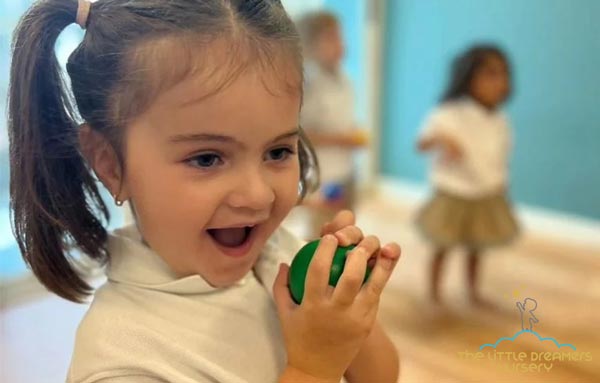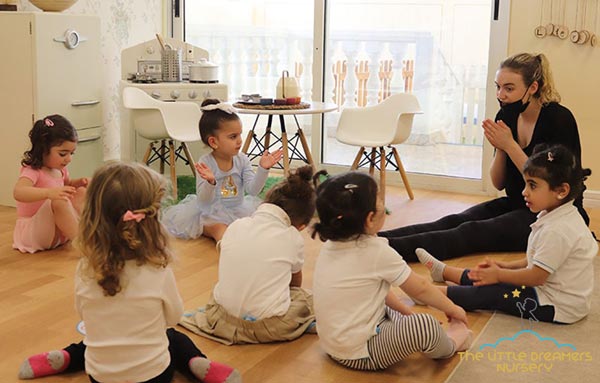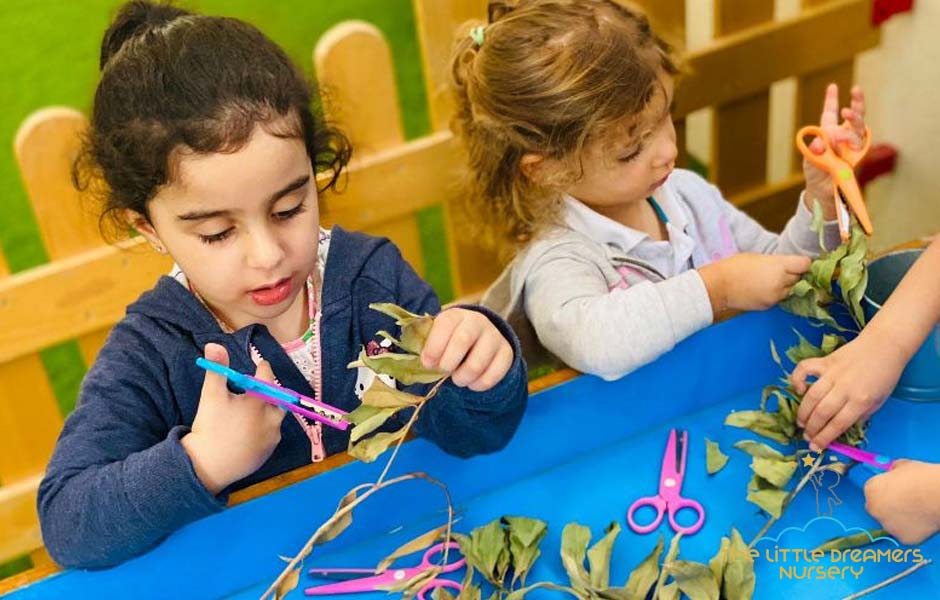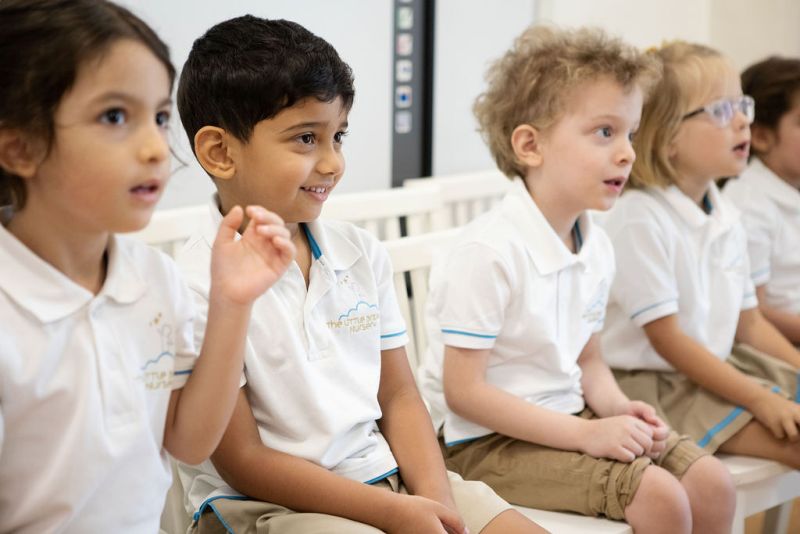Nursery rhymes, those whimsical and often repetitive tunes that have been passed down through generations, are more than just catchy songs for children. They are, in fact, a magical gateway to a world of learning and development. As educators at The Little Dreamers Nursery in Dubai, we wholeheartedly believe in the power of nursery rhymes to shape a child’s early years. Let’s unravel the magic and explore what these delightful rhymes truly achieve.
Nurture Language Development
The Melodious Language of Rhymes
Nursery rhymes are a delightful blend of rhythm, melody, and simple language. The playful words and rhyming patterns in nursery rhymes help children develop an ear for language. The repetition of rhymes enhances vocabulary and supports language comprehension. For children in our nursery in Jumeirah, this language immersion is vital for their overall linguistic growth.
Learning Phonetics with Playfulness
The phonetic nature of nursery rhymes aids children in understanding sounds and their corresponding letters. When they chant, sing, or even dance to these rhymes, they are subconsciously learning about syllables, phonemes, and intonation—all critical elements of early language development.
Cultivate Social and Emotional Skills
Emotional Expression through Verses
Nursery rhymes often encapsulate simple narratives with emotions that children can relate to. Whether it’s the excitement of ‘Twinkle, Twinkle, Little Star’ or the playfulness of ‘Incy Wincy Spider,’ these rhymes allow children to identify and express a wide range of emotions. It’s a stepping stone towards understanding and managing their feelings.
Shared Experience and Togetherness
Gathering children together to sing nursery rhymes fosters a sense of togetherness and community. It promotes social interaction, cooperation, and peer bonding. At The Little Dreamers Nursery, we witness how this shared experience helps children build friendships and encourages collaborative learning.
Enhance Cognitive Skills
Memorization and Sequencing
Nursery rhymes are a fabulous way to introduce sequences and patterns to young minds. Remembering the order of verses or actions in a rhyme enhances memory and pattern recognition—a cognitive skill crucial for a child’s future learning endeavours.
Imaginary Worlds and Creativity
Many nursery rhymes transport children to whimsical imaginary worlds. This encourages creativity and imaginative thinking. As children visualize the stories, characters, and settings depicted in the rhymes, they develop their creative faculties.
Instilling Cultural Awareness and Historical Understanding
Timeless Tales and Historical Roots
Many nursery rhymes carry historical or cultural significance, often hidden behind their playful verses. By delving into these rhymes, children can unknowingly absorb a bit of history and culture.
Diverse Perspectives and Multicultural Learning
Nursery rhymes come from diverse origins and cultures. Introducing children to rhymes from various cultures cultivates an early appreciation for diversity and multiculturalism. It broadens their understanding of the world and fosters respect for different traditions and languages.
Fostering Motor Skills and Coordination
Dance and Movement
Many nursery rhymes are accompanied by simple dance or hand movement patterns. Encouraging children to move and groove with the rhyme helps in developing their motor skills and coordination. The rhythm and beat of the rhymes provide a natural cadence for children to match their movements.
Fine Motor Skills through Actions
Incorporating actions like clapping hands, tapping feet, or moving fingers while reciting nursery rhymes aids in refining fine motor skills. These actions enhance muscle control and dexterity in young hands, contributing to their overall physical development.
Facilitating Numerical and Mathematical Concepts
Counting and Numerical Sequence
Several nursery rhymes involve counting, such as ‘Five Little Ducks.’ These rhymes introduce basic numerical concepts and counting engagingly and memorably, setting the stage for later mathematical understanding.
Understanding Patterns and Sequences
Patterns and sequences often appear in nursery rhymes. Recognizing these patterns supports early mathematical comprehension. Whether it’s the repetitive structure of ‘Old MacDonald Had a Farm’ or the sequence of days in ‘Monday’s Child,’ children begin to grasp foundational mathematical principles.
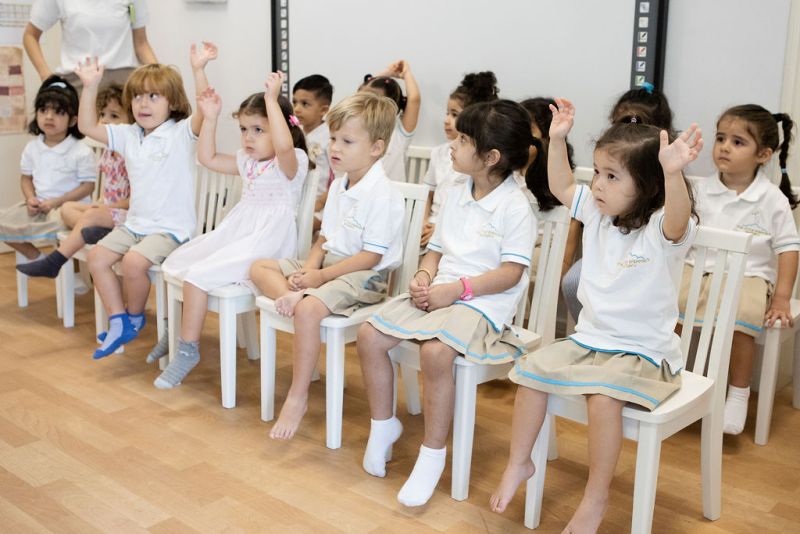 Encouraging Attention and Listening Skills
Encouraging Attention and Listening Skills
Focused Listening and Concentration
To fully enjoy and participate in a nursery rhyme, children need to listen attentively. This practice of focused listening enhances their attention spans and concentration levels—an essential skill for absorbing information in any learning environment.
Retaining and Recalling Information
Remembering the words, tunes, and actions of nursery rhymes encourages memory retention and recall. This ability to retain and reproduce information is fundamental in a child’s learning journey.
Conclusion: A Symphony of Growth
Nursery rhymes compose a symphony of growth, encompassing not just language and social skills, but a myriad of other developmental domains. From cultural understanding to physical coordination, from numerical comprehension to enhanced listening abilities, nursery rhymes play a vital role in shaping a well-rounded, capable individual. Join us at The Little Dreamers Nursery in Dubai, where we embrace the magic of nursery rhymes to nurture young minds and let the melody of learning thrive.
The Enchantment Lives On
At The Little Dreamers Nursery, we celebrate the enchanting world of nursery rhymes and the incredible impact they have on a child’s development. Nursery rhymes are more than just tunes; they are the keys that unlock a child’s potential—linguistically, socially, emotionally, and cognitively. Through the magic of nursery rhymes, we aim to nurture, educate, and help every child dream big and reach for the stars.
Join us at our award-winning nursery in Dubai, located in the heart of Jumeirah, to witness this enchantment firsthand. Let’s make learning a melody of joy and discovery, one nursery rhyme at a time.

